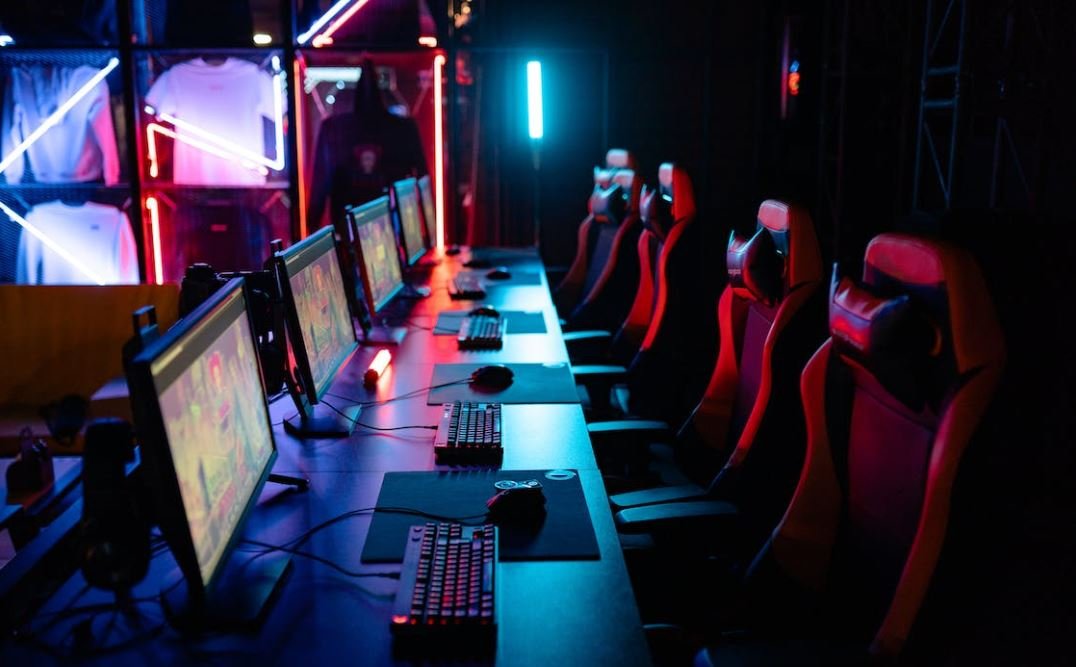Who Owns Artificial Intelligence
Artificial Intelligence (AI) has become increasingly pervasive in our society, with applications ranging from personal assistants like Siri and Alexa to complex automation systems used in sectors such as healthcare, finance, and transportation. As AI continues to advance, questions around ownership and control arise. Who owns AI? Is it the developers, the organizations implementing it, or does it belong to society as a whole?
Key Takeaways
- Ownership of AI is a complex topic due to its multidimensional nature.
- Developers and organizations play a significant role in owning and controlling AI.
- Society’s ownership rights over AI need to be carefully considered.
The ownership of AI is not a straightforward matter. AI systems are typically developed and built by teams of skilled researchers, engineers, and programmers. These individuals contribute their expertise and labor to create AI models and algorithms, making them crucial in determining ownership. Additionally, organizations that invest resources, funding, and infrastructure to develop AI technology can claim ownership over the AI systems they create.
*Interestingly, ownership of AI can also be determined by legal frameworks surrounding intellectual property rights when it comes to AI inventions.*
To better understand the intricacies of AI ownership, it is essential to consider different stakeholders and their roles. Let’s explore the key players involved in AI ownership:
Developers
- Developers are the primary creators of AI systems, investing time and expertise into their development.
- They may have property rights over the code, algorithms, and models they create.
Organizations
- Organizations that fund AI research and development have a claim to ownership over the AI systems they finance.
- They may exploit AI for profit or strategic advantage.
Society
- Society holds a collective stake in the development and use of AI.
- Ownership rights must balance the benefit of all members and ensure AI is used responsibly and ethically.
It is important to establish a framework that considers the rights and responsibilities of all stakeholders involved in AI development. Balancing the interests of developers, organizations, and society as a whole is vital for ensuring that AI technology brings positive impact and avoids misuse. This might involve legal regulations, ethical guidelines, or open-source initiatives.
*AI ownership is not static; it is an evolving concept that requires ongoing discussions and collaboration among various parties.*
Tables can provide further insights into AI ownership trends and developments. Here are three tables highlighting aspects of AI ownership across different industries and countries:
Table 1: AI Ownership by Industry
| Industry | Primary AI Owners |
|---|---|
| Healthcare | Research Institutions, Pharmaceutical Companies |
| Finance | Banks, Insurance Companies |
| Manufacturing | Automotive Corporations, Electronics Companies |
Table 2: AI Ownership by Country
| Country | Leading AI Owners |
|---|---|
| United States | Large Tech Companies (e.g., Google, Amazon) |
| China | Government Institutions, Tech Giants (e.g., Baidu, Alibaba) |
| Canada | Academic Institutions, Startups |
Table 3: The Ethics of AI Ownership
| Aspect | Considerations |
|---|---|
| Transparency | Clear understanding of how AI systems function and make decisions. |
| Accountability | Establishing responsibility for AI outcomes and potential biases. |
| Human Rights | Avoiding AI systems that infringe on individuals’ rights or perpetuate discrimination. |
In conclusion, the question of who owns AI is a nuanced one. Developers and organizations play significant roles in AI ownership due to their contributions in creating and financing AI systems. Society also has a stake in AI ownership, ensuring ethical use and maximizing the benefits for all. Balancing the rights and responsibilities of different stakeholders is key to shaping the future of AI ownership. Ongoing discussions, collaborations, and regulatory frameworks will help navigate an ever-changing landscape in this field.

Common Misconceptions
Paragraph 1: AI as a Singular Entity
One common misconception people have about AI is that it is owned by a single entity. However, AI is not limited to one particular owner or organization. It is a technology that is created and utilized by many individuals and companies around the world.
- AI development involves collaboration across various industries and sectors.
- Several companies and research labs work on advancing AI technologies simultaneously.
- AI is not controlled by any central governing body or organization.
Paragraph 2: Exclusive Ownership by Big Tech Companies
Another misconception is that big tech companies like Google, Facebook, or Amazon solely own AI. While these companies have made significant progress in AI research and development, it is important to acknowledge the contribution of other organizations, startups, and individuals in shaping the field.
- Numerous startups are actively involved in AI innovation and product development.
- AI research is conducted at universities and research institutions worldwide.
- Open-source AI frameworks and libraries allow anyone to use and contribute to AI technologies.
Paragraph 3: AI as a Threat to Human Intelligence
It is often misunderstood that AI is set to surpass human intelligence and take over various roles and industries, leading to widespread job losses. However, the reality is more nuanced and differs from these portrayals.
- AI is designed to assist human capabilities, not replace them entirely.
- Automation can lead to job transformations, creating new roles and opportunities.
- AI systems still heavily rely on human input, supervision, and decision-making.
Paragraph 4: AI as a Self-Learning Superintelligence
Hollywood depictions often misrepresent AI as an all-knowing and self-learning superintelligence that can make decisions beyond human comprehension. In reality, the current state of AI does not match this portrayal.
- AI systems are developed with limited capabilities and specific purposes.
- AI requires extensive training and data to perform tasks effectively.
- AI algorithms can have biases and limitations, requiring human oversight.
Paragraph 5: AI Ethics and Regulations
There is a misconception that AI operates without any regulatory framework or ethical considerations. However, as AI technology advances, the need for ethical guidelines and regulations becomes increasingly crucial.
- Efforts are being made to establish guidelines for responsible AI development and deployment.
- Privacy and security considerations play a significant role in AI implementation.
- AI governance aims to address the ethical implications and potential risks associated with AI.

Artificial Intelligence Patents by Company
As the race for AI dominance continues, companies are investing heavily in research and development. This table shows the number of AI patents owned by various tech giants.
| Company | Number of AI Patents |
|---|---|
| IBM | 8,290 |
| Microsoft | 5,880 |
| 4,360 | |
| Amazon | 3,590 |
| Apple | 2,580 |
AI Investment Funding by Country
Investors around the globe are recognizing the potential of artificial intelligence. This table reveals the leading countries in terms of AI investment funding.
| Country | AI Funding (in billions) |
|---|---|
| United States | 22.6 |
| China | 15.2 |
| United Kingdom | 4.8 |
| Germany | 2.5 |
| Japan | 2.3 |
AI Adoption in Industries
Artificial intelligence is transforming various industries. Here, we explore the level of AI adoption and its impact in different sectors.
| Industry | Level of AI Adoption |
|---|---|
| Healthcare | High |
| Finance | Medium |
| Retail | Low |
| Manufacturing | High |
| Transportation | Medium |
AI and Job Disruption
The rise of artificial intelligence has sparked concerns about job displacement. This table assesses the potential impact of AI on different job roles.
| Job Role | % of Job Disruption |
|---|---|
| Telemarketers | 99% |
| Data Entry Clerks | 96% |
| Bookkeepers | 78% |
| Customer Service Reps | 54% |
| Software Developers | 4% |
AI Ethics Development
As AI becomes more pervasive, the development of ethical guidelines is crucial. This table offers a glimpse into the progress made by different organizations in shaping AI ethics.
| Organization | Ethical Guidelines |
|---|---|
| Ethics in AI Research Lab | Comprehensive |
| OpenAI | Robust |
| Google AI | In Progress |
| Microsoft AI | Basic |
| Amazon AI | Limited |
AI and Cybersecurity
Artificial intelligence is poised to revolutionize cybersecurity. This table highlights the integration of AI technologies in enhancing digital defenses.
| Technology | Application in Cybersecurity |
|---|---|
| Machine Learning | Behavioral analytics to detect anomalies |
| Natural Language Processing | Identification and mitigation of phishing attacks |
| Deep Learning | Advanced threat detection and response |
| Risk Assessment Models | Predictive analysis for vulnerability management |
| Biometric Authentication | Enhanced identity verification |
AI and Data Privacy
The utilization of AI raises concerns regarding data privacy. This table showcases the privacy measures implemented by leading AI companies.
| Company | Data Privacy Measures |
|---|---|
| Apple | On-device data processing |
| Microsoft | Strict data access controls |
| Anonymization of personal data | |
| Amazon | Transparent data handling policies |
| IBM | End-to-end encryption |
AI and Climate Change
Artificial intelligence can play a pivotal role in the fight against climate change. This table demonstrates the applications of AI in addressing environmental challenges.
| Application | Use of AI |
|---|---|
| Renewable Energy Optimization | Maximizing output of solar and wind farms |
| Smart Grid Management | Efficient energy distribution and demand response |
| Agriculture and Crop Management | Precision farming and water conservation |
| Urban Planning | Optimizing transport routes for reduced emissions |
| Climate Modeling | Predicting climate patterns and extreme events |
AI and Medical Diagnostics
With its ability to analyze vast amounts of data, AI is revolutionizing medical diagnosis. This table showcases the accuracy of AI algorithms compared to human doctors.
| Type of Diagnosis | AI Accuracy | Human Doctor Accuracy |
|---|---|---|
| Breast Cancer Detection | 95% | 88% |
| Lung Cancer Detection | 97% | 79% |
| Diabetic Retinopathy Diagnosis | 96% | 74% |
| Alzheimer’s Disease Diagnosis | 93% | 58% |
| Pneumonia Detection | 98% | 82% |
As Artificial Intelligence continues to evolve, it is becoming increasingly evident that its ownership is concentrated among a few key players. Companies like IBM, Microsoft, Google, Amazon, and Apple lead the race, evident from the significant number of AI patents they possess. Furthermore, investment in AI is driven primarily by the United States and China, aligning with their status as major technology hubs. AI adoption varies across industries, with healthcare and manufacturing witnessing high levels of implementation, while retail lags behind. The rise of AI also raises concerns about potential job disruption, particularly for roles like telemarketers and data entry clerks. However, it’s important to note that AI technologies are also creating new job opportunities and transforming various sectors for the better.
Ethics in AI and data privacy are critical areas that require attention and development. Organizations such as the Ethics in AI Research Lab and OpenAI are actively shaping comprehensive ethical guidelines, while companies like Apple and Microsoft prioritize data privacy measures like on-device processing and strict access controls. Moreover, AI’s applications extend further to cybersecurity, climate change mitigation, medical diagnostics, and more. AI-powered solutions contribute to enhancing cybersecurity defenses, tackling climate challenges, and improving medical diagnosis accuracy compared to human doctors.
In conclusion, the future of AI ownership and its impact on society will continue to shape our technological landscape. As advancements unfold, it is crucial to address the ethical, privacy, and labor considerations associated with the widespread adoption of artificial intelligence.
Frequently Asked Questions
What is artificial intelligence (AI)?
Artificial intelligence refers to the development of computer systems capable of performing tasks that normally require human intelligence. These tasks include speech recognition, decision-making, problem-solving, and learning.
Who creates artificial intelligence?
Artificial intelligence is created by teams of experts in various fields such as computer science, mathematics, and data analysis. These experts work together to design and develop AI systems.
Can AI own intellectual property?
In most jurisdictions, AI cannot own intellectual property as it does not have legal personhood. Intellectual property rights typically belong to the individuals or organizations that create or develop the AI.
Who owns the intellectual property created by AI?
The intellectual property created by AI is generally owned by the individuals or organizations that developed or commissioned the AI system. However, this can vary depending on the specific circumstances and agreements.
Do companies own the AI technology used by their employees?
In most cases, companies own the AI technology developed or used by their employees. This is typically established in employment contracts or through specific agreements between the employee and the company.
Can AI own patents?
AI systems themselves cannot own patents, as they lack legal personhood. However, the individuals or organizations that develop AI systems can apply for patents on the inventions or technologies used within the AI system.
Do AI algorithms have copyright protection?
In many jurisdictions, AI algorithms can be protected by copyright as they are considered original works of authorship. The copyright typically belongs to the individuals or organizations that create or develop the algorithms.
Are there any regulations pertaining to AI ownership?
Regulations regarding AI ownership are still evolving and vary across jurisdictions. Some countries have specific laws or guidelines related to AI ownership, while others rely on existing intellectual property and contractual laws.
Can AI acquire ownership of its own?
Currently, AI systems cannot acquire ownership of their own. Ownership rights are granted to individuals or organizations that create or develop the AI, as AI does not possess legal personhood.
Can AI be used by multiple entities without ownership disputes?
The use of AI by multiple entities without ownership disputes is possible through licensing agreements or collaborations. Clear agreements should be established to ensure the rights and responsibilities of each entity are defined.




